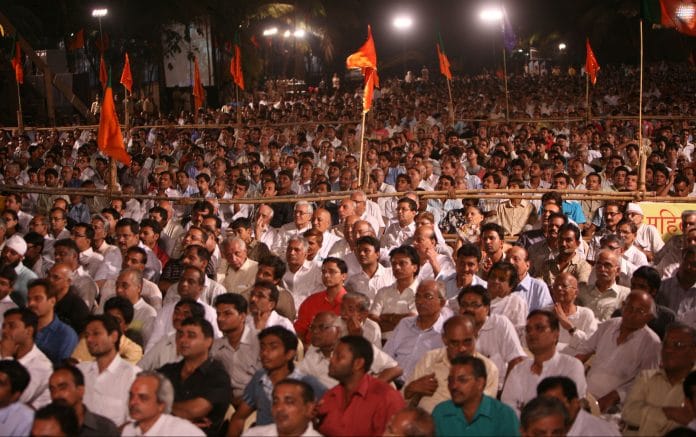The Election Commission seized Rs 161.47 crore in cash from the five states where elections were just held.
New Delhi: In every election — parliamentary or state — the Election Commission machinery seizes hordes of illegal cash used by politicians to bribe voters.
This poll season, too, cash worth Rs 161.47 crore has been seized so far from Madhya Pradesh, Mizoram, Rajasthan, Chhattisgarh and Telangana, according to the latest EC data.
But what happens to this cash after it is seized? To find out, ThePrint spoke to several officers who have served as election expenditures observers both in the Lok Sabha polls and assembly elections.
Returned or given to district treasuries
A senior government official explained that in many cases, when a large amount of cash is intercepted by teams deployed by the EC, the team on the spot may not be able to find adequate evidence to prove that it is linked to the polls.
“The Income Tax Department then takes charge of the cash and conducts the requisite proceedings to check if the cash is accounted for. If not, the tax and penalties, if any, are deducted from the amount and the rest is given back to whom it was confiscated from,” the official said.
A senior officer from the Income Tax Department, who was an election expenditure observer in a recent state election, said in cases where there is enough evidence to prove that the cash is meant for election purposes, it is seized by the team on the spot, and a complaint or FIR is registered.
A court then hears the case, and if it rules that the seized amount was not meant for election purposes, such as bribes to voters, it is returned to the person.
“However, in a few cases, if the court rules that the cash seized was for election purposes, it gets deposited in the district treasuries,” the official said.
Another official said that what happens to the money is not tracked by most after poll season gets over, “because the objective of ensuring free and fair polls is met”.
Also read: Election Commission is exploring expense limits for candidates based on constituency
The teams deployed to seize cash
Under every election expenditure observer, several teams — flying squads, static surveillance teams, video surveillance teams etc. — are deployed to keep a tab on the expenses in every constituency.
Depending on how expenditure-sensitive a constituency is, there could be three or more dedicated flying squads or static surveillance teams to track illegal cash transactions, or distribution of liquor, or other items suspected of being used to bribe voters.
The teams consist of a senior executive magistrate, a senior police officer, a videographer and a few armed personnel. While the flying squads are mobile and reach the venue on receiving a complaint, the static surveillance teams are placed at certain locations in the constituency.
The seizure process is video recorded.
The teams start functioning from the date of announcement of election and continue till the completion of the polls.
The police is also empowered to seize illegal cash or other items such as liquor which could be used to bribe the voters.
Cash seized this time
Till 5 December, the final day of campaigning in this round of state elections, Telangana has contributed the highest amount of cash seized — Rs 109.69 crore of the total Rs 161.47 crore.
The total value of what has been seized so far, including cash, alcohol and precious metals, is Rs 288.58 crore.
Distribution of cash or other items that could be used for bribe or use of muscle power for influencing electors is a crime under Section 171 of the Indian Penal Code and corrupt practices under Section 123 of the Representation of the People Act, 1951.
The Election Commission also postpones polling dates if it gets credible reports of voters being bribed or other poll malpractices.
Also read: The United States should hire India’s Election Commission to conduct their polls






